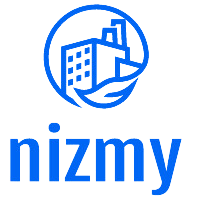The DASH diet, which stands for Dietary Approaches to Stop Hypertension, is a well-known and highly recommended eating plan for those looking to lower their blood pressure. It has been consistently ranked as one of the best diets for overall health and has even been recommended by the American Heart Association. In this blog post, we will take a closer look at what the DASH diet is, its benefits, and how it can help you lower your blood pressure naturally.
Introduction to the DASH Diet
The DASH diet was developed in the 1990s with the goal of helping individuals reduce their blood pressure without medication. It is a well-balanced eating plan that focuses on incorporating whole foods and limiting processed foods, sodium, and unhealthy fats. The diet also promotes the consumption of essential nutrients such as potassium, calcium, magnesium, and fiber, which have been shown to positively affect blood pressure.
According to the National Heart, Lung, and Blood Institute, the DASH diet can lower blood pressure by 8-14 mmHg, making it an effective and natural way to manage hypertension. Additionally, the DASH diet has been linked to numerous other health benefits, including weight loss, improved heart health, and reduced risk of chronic diseases such as diabetes and cancer.
What is high blood pressure?

Before delving into the specifics of the DASH diet, it is important to understand what high blood pressure is and why it is a cause for concern. Also known as hypertension, high blood pressure is a condition where the force of blood against the walls of your arteries is consistently higher than normal. This can lead to serious health complications such as heart disease, stroke, kidney disease, and vision loss.
Blood pressure is measured using two numbers: systolic pressure (the top number) and diastolic pressure (the bottom number). A healthy blood pressure reading is typically below 120/80 mmHg, while a reading of 130/80 mmHg or higher is considered high blood pressure.
Causes of high blood pressure

There are several factors that can contribute to high blood pressure, including genetics, age, and lifestyle choices. Some individuals may have a family history of hypertension, making them more prone to developing it themselves. As we age, our arteries naturally become stiffer, which can lead to an increase in blood pressure.
However, the most significant contributor to high blood pressure is often unhealthy lifestyle habits. These include a diet high in sodium and saturated fats, lack of physical activity, smoking, excessive alcohol consumption, and chronic stress. It is essential to address these factors in order to effectively manage and lower blood pressure.
Benefits of the DASH Diet
As previously mentioned, the DASH diet has been linked to numerous health benefits, particularly when it comes to managing blood pressure. Let’s take a closer look at some of the potential benefits of following this eating plan:
- Lowered blood pressure: The DASH diet’s focus on incorporating whole foods and limiting processed foods and sodium has been shown to reduce blood pressure significantly.
- Improved heart health: By reducing blood pressure and promoting the consumption of essential nutrients, the DASH diet can also improve overall heart health and reduce the risk of heart disease and stroke.
- Weight loss: The DASH diet is not necessarily designed for weight loss, but because it encourages the consumption of whole, nutrient-dense foods, many individuals find that they naturally lose weight while following this eating plan.
- Reduced risk of chronic diseases: A diet rich in fruits, vegetables, lean proteins, and healthy fats can also help reduce the risk of chronic diseases such as type 2 diabetes, certain cancers, and osteoporosis.
- Increased energy and well-being: Following a well-balanced diet can improve energy levels, mood, and overall well-being, making you feel better both physically and mentally.
Foods to include in the DASH Diet
The DASH diet emphasizes whole, unprocessed foods that are rich in essential nutrients. This includes:
- Fruits and vegetables: Aim for 4-5 servings of fruits and 4-5 servings of vegetables per day. Choose a variety of colors and types to ensure you are getting a range of nutrients.
- Whole grains: Half of the grains you consume should be whole grains, such as brown rice, quinoa, oats, and whole-wheat bread.
- Lean proteins: Opt for lean protein sources such as skinless chicken, fish, beans, and tofu.
- Low-fat dairy products: The DASH diet recommends 2-3 servings of low-fat or non-fat dairy products per day, such as milk, yogurt, and cheese.
- Healthy fats: Incorporate healthy fats into your diet from sources such as avocado, nuts, seeds, and olive oil.
Foods to avoid in the DASH Diet
To effectively lower blood pressure, it is important to limit or avoid certain foods that are known to increase blood pressure. These include:
- Sodium: The DASH diet recommends limiting sodium intake to no more than 2,300 milligrams (mg) per day, with an ideal goal of 1,500 mg per day for optimal blood pressure control.
- Saturated and trans fats: These unhealthy fats can raise cholesterol levels and increase the risk of heart disease. Limit your intake of red meat, processed foods, and fried foods.
- Added sugars: Avoid or limit foods and beverages high in added sugars, such as soda, candy, and baked goods.
Meal planning tips for the DASH Diet
Planning meals around the DASH diet may seem overwhelming at first, but with some simple tips, it can become a sustainable and enjoyable way of eating. Here are a few meal planning tips to get you started:
- Start slow: If you’re not used to eating a diet rich in fruits, vegetables, and whole grains, it can be challenging to make the switch overnight. Start by incorporating one or two DASH-friendly meals each day and gradually increase from there.
- Make simple swaps: Look for ways to incorporate healthier ingredients into your favorite meals. For example, use whole-wheat pasta instead of regular pasta or opt for a homemade marinara sauce instead of a store-bought version that may be high in sodium.
- Plan ahead: To ensure you have healthy options available, plan your meals and snacks for the week ahead. This will also help you make healthier choices when you are short on time or don’t feel like cooking.
- Get creative with seasonings: Instead of relying on salt for flavor, experiment with herbs, spices, and citrus juices to add flavor to your meals without adding extra sodium.
- Meal prep: Take some time at the beginning of the week to prepare some staples such as roasted vegetables, cooked grains, and lean proteins. This will make it easier to throw together a balanced meal when you’re short on time.
Success stories of individuals lowering blood pressure with the DASH Diet
The DASH diet has been proven to be effective in lowering blood pressure, and there are many success stories from individuals who have experienced positive changes in their health by following this eating plan.
For example, Lisa lost 25 pounds and significantly reduced her blood pressure in just three months on the DASH diet. She incorporated more fruits, vegetables, and whole grains into her diet and cut back on processed foods and sodium. Similarly, Mike saw a dramatic decrease in his blood pressure after following the DASH diet and incorporating regular exercise into his routine.
While everyone’s experience may vary, these success stories serve as motivation and evidence of the effectiveness of the DASH diet in lowering blood pressure.
Conclusion and final thoughts
The DASH diet has been proven to be an effective and natural way to lower blood pressure and improve overall health. By emphasizing whole, nutrient-dense foods and limiting processed foods, sodium, and unhealthy fats, this eating plan can help individuals manage hypertension and reduce the risk of chronic diseases.
It is important to note that while the DASH diet can be a helpful tool in managing blood pressure, it should not replace medical advice or medication prescribed by a healthcare professional. It is always a good idea to consult with your doctor before making any significant changes to your diet or lifestyle.
In conclusion, the DASH diet is a well-rounded and sustainable eating plan that can have significant benefits for both your physical and mental well-being. By incorporating more whole, unprocessed foods into your diet and being mindful of your sodium intake, you can work towards maintaining a healthy blood pressure and overall healthy lifestyle.

